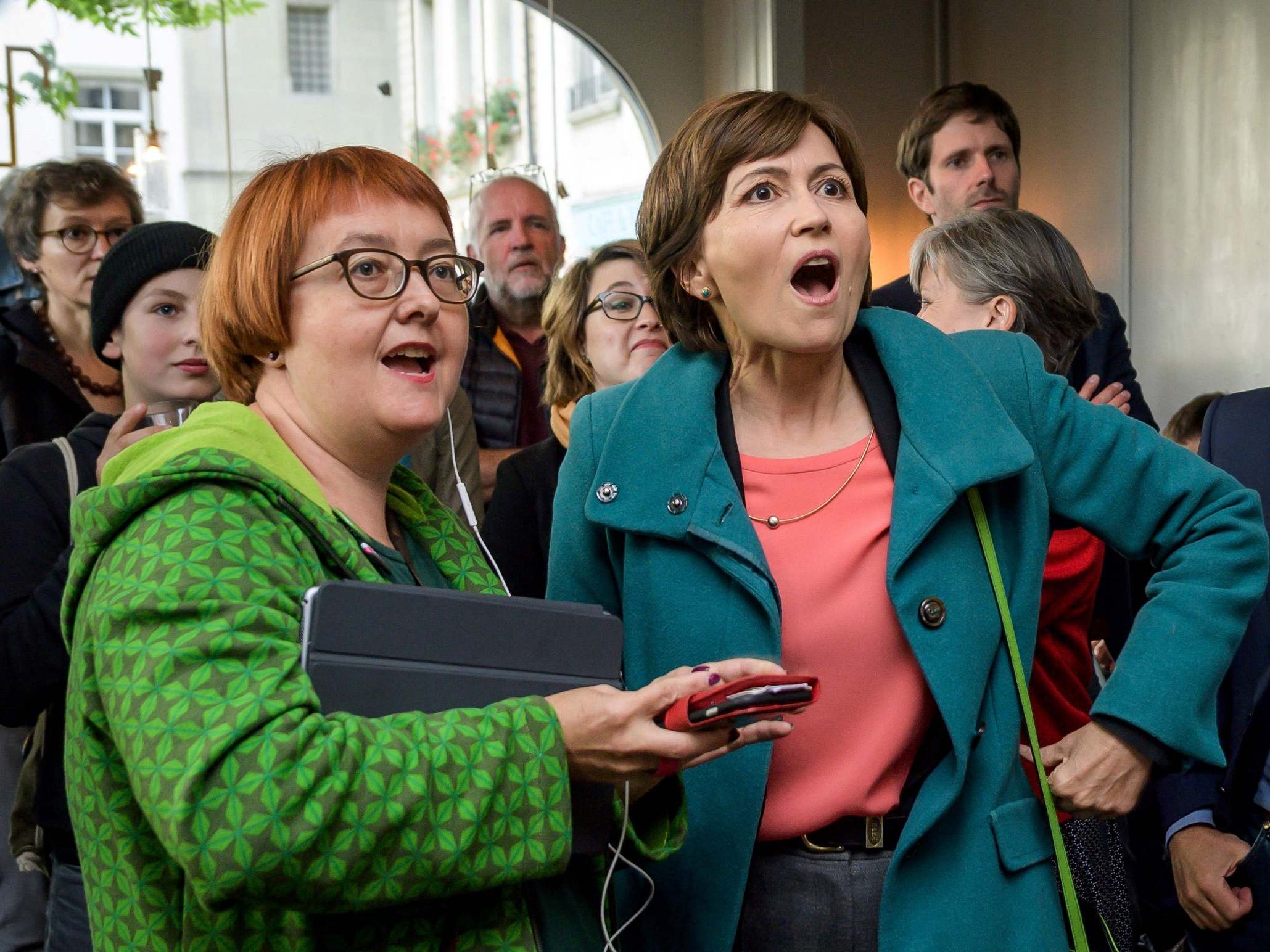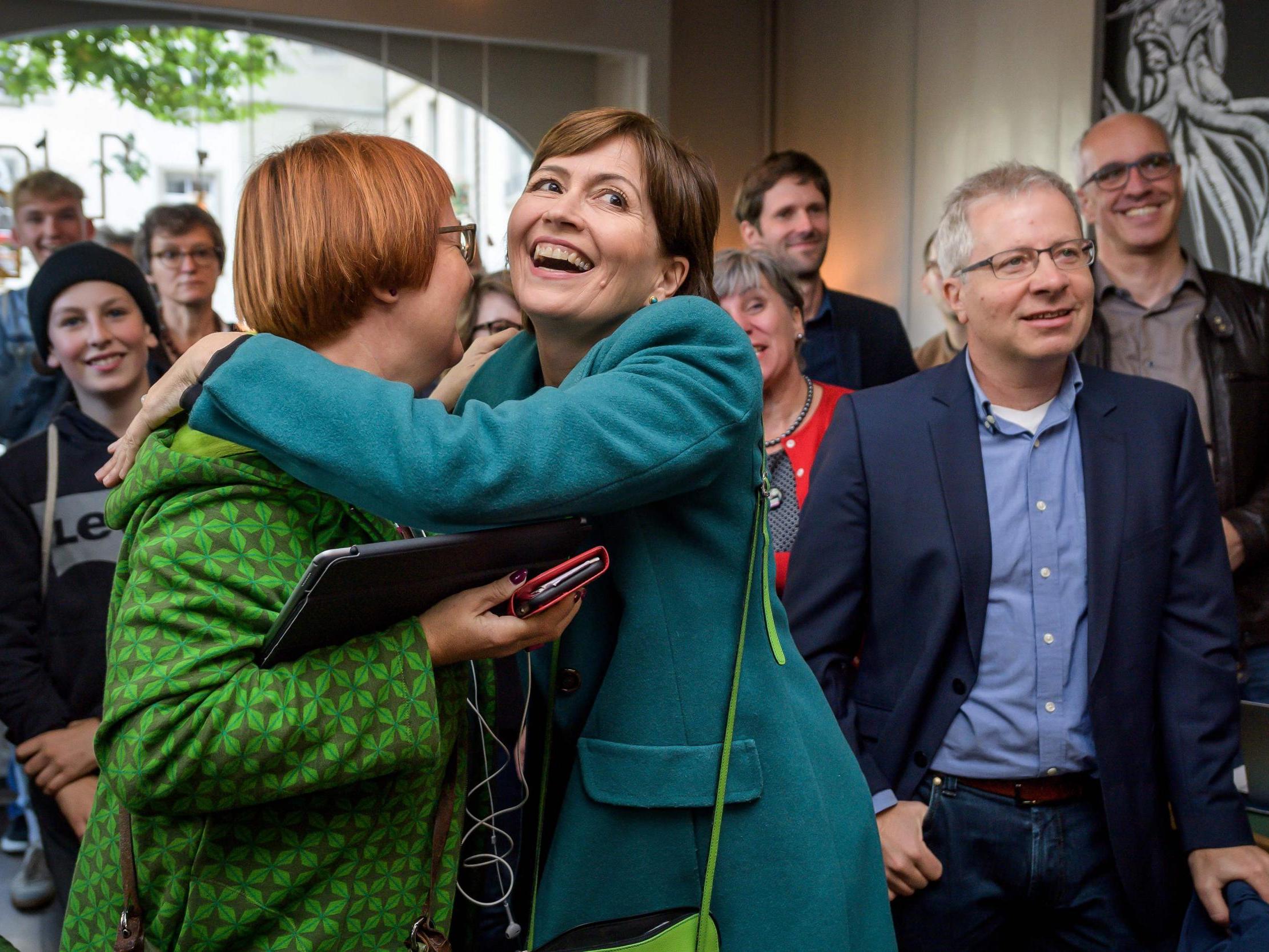‘Not a wave, a tsunami’: Green parties celebrate historic gains in Swiss election
Leader ‘completely overwhelmed’ by surprise vote surge

Your support helps us to tell the story
From reproductive rights to climate change to Big Tech, The Independent is on the ground when the story is developing. Whether it's investigating the financials of Elon Musk's pro-Trump PAC or producing our latest documentary, 'The A Word', which shines a light on the American women fighting for reproductive rights, we know how important it is to parse out the facts from the messaging.
At such a critical moment in US history, we need reporters on the ground. Your donation allows us to keep sending journalists to speak to both sides of the story.
The Independent is trusted by Americans across the entire political spectrum. And unlike many other quality news outlets, we choose not to lock Americans out of our reporting and analysis with paywalls. We believe quality journalism should be available to everyone, paid for by those who can afford it.
Your support makes all the difference.Support for the Greens surged in Switzerland’s parliamentary election on Sunday in a shift to the left one politician described as a “tsunami” for the political establishment.
While a right-wing populist party remains the country’s strongest, the projected result could dilute centre-right parties’ traditional grip on the Swiss government.
The Green Party and the Green Liberals, a newer centrist party with an environmental focus, appear to have won a combined vote share of 20 per cent.
“It is not a green wave, it is a tsunami, a hurricane,” said Caroline Vara, the deputy Green Party leader, who won a seat in the upper house of parliament.
Regula Rytz, the Green Party’s leader, said she was “completely overwhelmed”, adding that “it is clear that the population wants greener politics”, according to SRF, the Swiss public broadcaster.
Together the two green parties are expected to gain 26 seats in the 200-seat lower house of parliament.
The parties are now potentially in line to win a place in the Federal Council, the seven-seat governing cabinet.
The seats have been divided among the same four parties in nearly the same composition since 1959.
“The Federal Council in its current composition no longer fits [the changed political situation],” Ms Rytz said.
The Green Party’s vote share appears to have surged 5.6 points, to 12.7 per cent of the vote, the organisation’s best political showing to date.

And the Green Liberals won 7.6 per cent of the vote from 4.6 per cent previously.
The right-wing and anti-immigration Swiss People’s Party has the largest vote share at 25.8 per cent, but slipped 3.6 points. The SVP had won a record number of seats in 2015 amid Europe’s refugee crisis.
The centre-left Social Democrats won second place with 16.6 per cent of the vote, while the centre-right FDP came in at 15.3 per cent.
Green politicians celebrated the fact that the party beat the centrist Christian Democrat party, which has one seat on the Federal Council.
“The spectacular gains for the Greens are a real surprise, particularly in the French-speaking part of the country,” said Lukas Golder, co-director of the Gfs Bern research institute.
“Swiss voters were concerned about climate issues and want parliament to act accordingly,” he added in an interview with SRF.
In December the two parliamentary chambers will elect the government.
It remains unclear if the Green Party will succeed in winning a cabinet seat. They will need support from other parties to pull off a possible challenge for a seat.
Currently the SVP, the Social Democrats and the FDP each hold two seats in the cabinet, while the Christian Democrats have one.
Switzerland’s presidency rotates between the members of the seven members of the Federal Council on an annual basis.
Additional reporting by agencies
Join our commenting forum
Join thought-provoking conversations, follow other Independent readers and see their replies
Comments